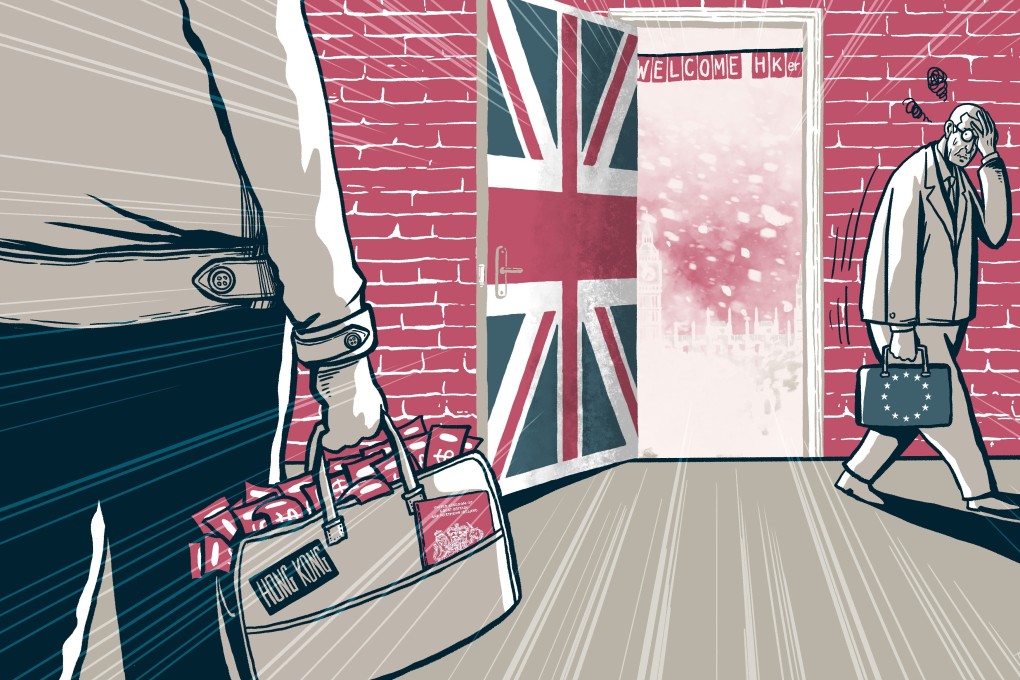National security law: boost for Britain, blow to Hong Kong? How the BN(O) ticket may affect fortunes of both sides
- Cash-rich Hongkongers could provide the fillip Britain’s battered economy needs badly
- Loss of young people and professionals in large numbers will hurt Hong Kong, economists say

From this weekend, Britain will start accepting applications from Hong Kong residents with British National (Overseas) status for a new visa that offers a pathway to citizenship. In the final of a three-part series on the BN(O) visa, the Post looks at the potential economic impact on both Britain and Hong Kong. Read parts one and two here.
Hongkonger Daisy Leung* and her family paid £500,000 (US$685,150) for a three-storey house in Reading, in the southeast of England, without even seeing it. The deal was sealed online.
“It’s about 45 minutes from London by train. It’s a very comfortable place with several parks nearby and the house is newly built,” said Leung, 27, who is preparing to move later this year with her mother, sister, brother-in-law and two-year-old nephew.
“We’re not emigrating, we’re fleeing Hong Kong,” the officer in a public institution said.
“I asked my mother if she was afraid and she told me: ‘As long as we are together as a family, there is nothing to be afraid about’.”
The middle-class family is among many in Hong Kong who bought property in Britain after its government announced plans last July to offer city residents with British National (Overseas) status and their dependants a pathway to citizenship.
The move followed Beijing’s imposition of a wide-ranging national security law on Hong Kong last June.